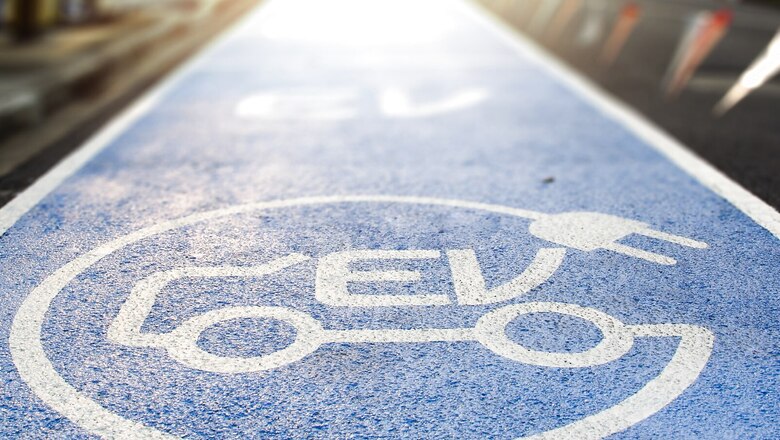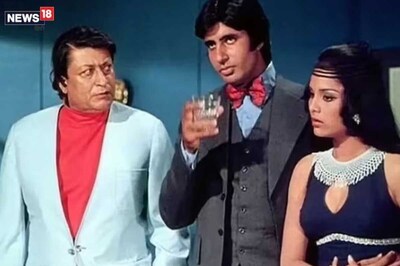
views
India needs a “mid-term course correction” to see the desired off-take in the mass adoption of electric vehicles, a “One India, One Policy” for the EV industry and a focused strategy for “enhancing its involvement” by way of subsidies and financing for supporting the EV transition, a parliamentary committee has recommended in its report.
“The Committee is deeply concerned to note the poor uptake in the sales of EV i.e., less than 1% sale compared to that of the Internal Combustion Engine (ICE) vehicle since the launch of FAME-I Scheme in the year 2015 by the Ministry of Heavy Industries,” the panel said in its report tabled in Parliament on Monday. The report says the intervention by the government for promoting EV adoption by way of subsidies, financial support, R&D etc in India “is very minimal compared to other countries, which is the reason why the off-take of EV adoption in India has been very low”.
“The Committee urges the government to play an important role as a catalyst for enabling faster adoption of Electric Mobility through subsidies, incentives and long-term sustainable policies for demand creation. Further, States which have not fully waived off road tax or registration fee on EVs should be directed to do so in order to attract consumers to go for EVs,” the committee has said in its detailed report.
The committee said there is a strong need to align policies across the Centre and the states as the difference in the structure and quantum of incentives across the central and state policies is why sales of electric vehicles are not picking up pace across the nation uniformly. “The Committee recommends that Government should align the Central and State policies across the nation and calibrate them to create a ‘One India One Policy’ for early adoption of Electric Mobility in India. Further, this would give EV manufacturers a clear direction to invest and create demand and facilitate mass adoption to EVs along the length and breadth of the country,” the report says.
What bothers potential EV buyers?
The committee said vehicle manufacturers and automobile associations told the MPs that the biggest concern of consumers regarding electric vehicles was “driving range, the cost/price premium over a normal vehicle and a lack of electric vehicle charging infrastructure.” The committee in its report has said the number of existing charging stations is very negligible and is concentrated in Metros and select cities.
“For a vast country like India with huge population of vehicles, the existing charging facility is too inadequate. Lack of visible number of charging stations have been the major reason for strong hesitancy in consumers to accept Electric Mobility. Unless and until the issue of inadequate charging facility is addressed, the adoption of Electric Mobility is hardly going to take-off,” the committee report has said.
The panel has recommended that the government should emphasise on establishing “dense, robust and fast charging infrastructure” across the country over and above the FAME (India)-II Scheme and if need be with public-private partnership (PPP). “It is advisable to have a live database of active charging stations installed all over the country and the locations readily available for the consumers for their reference enabling them to easily track the nearest charging station at times of need while on the move,” the report says.
‘Smart’ suggestions
The committee has suggested that for increasing numbers of charging stations, the government may explore installing smart meters on electric poles at dedicated locations and make small charging stations across the cities, villages and highways and issue smart cards to the EV owners, who can charge their batteries anywhere, which can be a good booster for the faster adoption of EVs. “The expenditure incurred on setting up of charging stations may be brought under ambit of CSR for 2-3 years. Further, renewal energy may be used for powering the Public Charging Stations,” the report has said.
The committee has said that due to rising petrol prices and low running cost of electric vehicles, middle-class families are considering buying EVs. “However, lack of visibility of public charging infrastructure creates dilemma in the minds of consumers for making purchase decision of electric vehicles, which has been one of the major challenges in the transition to Electric Mobility. Customers are also apprehensive of limited range provided by current EVs as it compels the customers to stick to intra-city journeys only and not inter-city trips. As per Deloitte survey, 35% consumer think driving range as the major constraint in buying EV,” the report says.
The manufacturers told the committee that the biggest challenge in EV adoption is the affordability, demand creation and high upfront cost. “India is a value conscious and price sensitive market. Affordability is the main consideration for making vehicle purchase decision for mass segment. Electric Vehicles are more expensive for a similar performing ICE Vehicles,” the report notes. “Affordability in Indian conditions is very different from the rest of the world as per capita income in India is only about $2000, about 5% of that in Europe and Japan. This reduces the ability of many people to buy higher priced cars,” manufacturers said to the panel.
Read all the Latest India News here



















Comments
0 comment